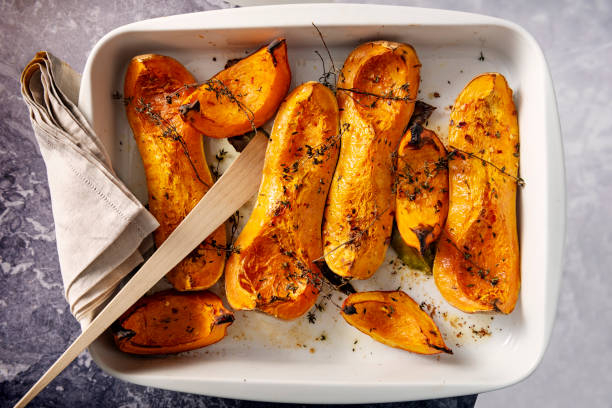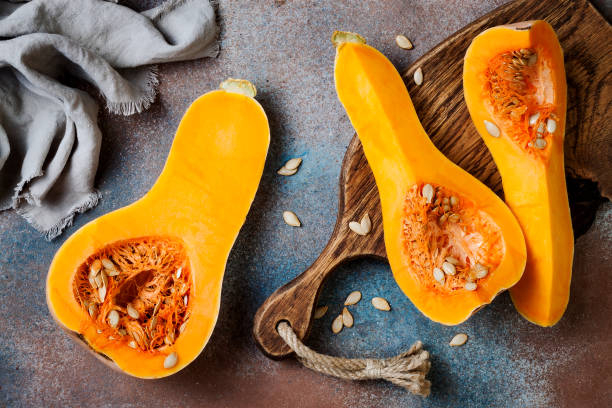Pack with Vitamins and Minerals
A great source of many vitamins and minerals is butternut squash. A cup (205 grams) of cooked butternut squash contains more than 450% of the recommended daily intake (RDI) of vitamin A and more than 50% of the RDI of vitamin C. Additionally, it contains a lot of carotenoids, which are plant pigments that give butternut squash its vivid color. Examples of these pigments are beta-carotene, beta-cryptoxanthin, and alpha-carotene. These substances are provitamin A carotenoids, which means that your body transforms them into retinal and retinoic acid, the forms of vitamin A that are actually active. Cell development, eye health, bone health, and immunological function are all regulated by vitamin A.
It is also essential for the growth and development of the fetus, making it a crucial vitamin for expectant moms. Vitamin C, a water-soluble component required for immunological function, collagen formation, wound healing, and tissue repair, is also abundant in butternut squash. The powerful antioxidant properties of vitamins A and C help your body fight off the harm that unstable molecules called free radicals may do to your cells. Another antioxidant included in butternut squash is vitamin E, which aids in preventing free radical damage and may lower your chance of developing age-related diseases like Alzheimer's disease. Additionally, this winter squash is a rich source of B vitamins, such as folate and B6, which your body requires for energy and the production of red blood cells.














